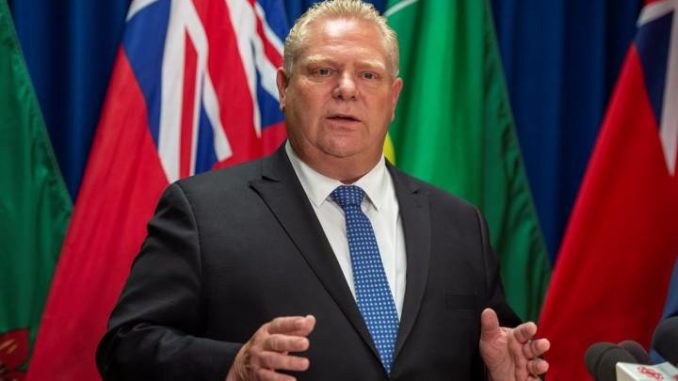
Ontario Continues to Fight for Businesses
Premier Doug Ford’s leadership to restore business competitiveness in Ontario has led to measures announced in today’s federal 2018 Fall Economic Statement.
As announced in the 2018 Ontario Economic Outlook and Fiscal Review, Ontario wrote to the federal government encouraging consideration of the immediate expensing of depreciable assets, similar to the United States.
With today’s announcement, the federal government took Ontario’s advice. The province continues to analyze the impacts of the changes across Ontario industries, though is disappointed the federal government did not completely mirror tax reform changes in the U.S.
“Recent U.S. tax reform has encouraged greater business investment in the U.S., challenging Ontario’s competitiveness,” said Vic Fedeli, Minister of Finance. “Creating an Open for Business environment requires competitive business taxes, which is why we welcome the federal measure to allow businesses to accelerate the expensing of depreciable assets.”
Ontario is committed to matching the federal measures announced today, and has made this part of its fiscal plan.
“Hundreds of thousands of jobs across Canada depend on businesses remaining competitive. We will never put Ontario jobs, investment and growth opportunities at risk,” said Fedeli.
Ontario’s Government for the People is doing its part by cutting taxes, ending cap-and-trade, reducing red tape and lowering hydro bills to make it easier to do business in Ontario, so that employers can grow and create jobs.
With passage today of Bill 47, the government is repealing much of the job-killing Fair Workplaces, Better Jobs Act, 2017 (Bill 148) and is keeping the minimum wage at $14 per hour, which would reduce employer costs by $1.4 billion in 2019.
Ontario is also taking steps to cut red tape by 25 per cent by 2022. In addition, the Province proposes to reverse the previous government’s announced changes to Ontario’s small business deduction that would have raised taxes by up to $40,000 per year for about 7,900 companies, and increase the amount of payroll that is exempt from the Employer Health Tax for eligible Ontario employers.
“We have taken action to support small business by reversing the federal government’s changes to passive income and we urge Ottawa to do the same. In addition, we are calling on the federal government to end the federal carbon tax to make Ontario and Canada more competitive.”
Ontario families and businesses cannot afford a carbon tax. The federal carbon tax will increase gasoline, diesel, natural gas, propane and heating oil bills for people in the province. Ontario’s Government for the People intends to protect Ontario families and businesses from being punished by a discriminatory federal carbon tax.
“Our government will always vigorously protect and advance Ontario’s economic interests,” said Fedeli. “We have made it clear that we will fight the carbon tax with every tool we have and will pursue ways to make sure that every person in Ontario is informed of how much they are paying in federal carbon tax — every time they pay a home heating bill or fill up their car.”

Leave a Reply